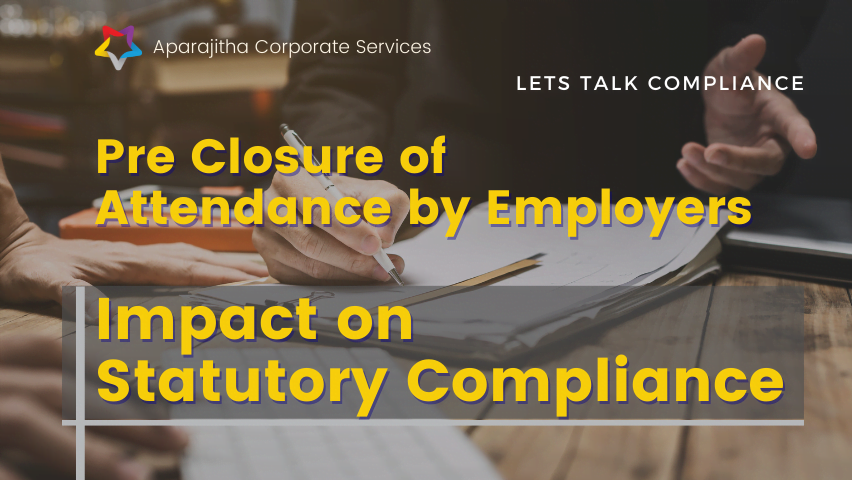Many Private Establishments in India resort to pre-closure of their employee’s attendance cycle, to ease their regular monthly salary process.
Under this practice, if employee’s attendance cycle is decided from the 20th day of the previous calendar month to the 19th day of the current calendar month, employees joining an organization after the 19th day of the current month, would get paid during the current month itself by processing supplementary payroll which is in line with the statutory compliance in India. If they are paid only in the subsequent month, it shall be considered as a violation of Sec 5 of the Payment of Wages Act, 1936.
While all eligible employees are statutorily to be extended with social security coverage under the Employees Provident Fund & Miscellaneous Provisions Act, 1952 and Employees State Insurance Act, 1948, they ought to be registered with the respective department from their original date of joining and generate UNIVERSAL ACCOUNT NUMBER (UAN) under EPFO and INSURED PERSON NUMBER (IP No) under ESIC. But, in case if these employee’s wages were not processed during the current calendar month despite having been employed, there could be a mismatch between the MUSTER ROLL and WAGE REGISTER which shall be considered as STATUTORY NON COMPLIANCE.
Additionally, no contribution (Both Employer and Employee share) could be deposited in respect of such registered employees either under EPF & MP Act, 1952 or under ESI Act, 1948 or under both these Acts as their salary for the current month was not processed during the current calendar month itself which shall also be considered as NON COMPLIANCE. Hence, under both these Act, the employer shall be statutorily liable for the consequences.
While Sec 5 of Payment of Wages Act, 1936 mandates payment of wages to employees either within the 7th day of the succeeding month in case of establishments with less than 1000 employees or within the 10th day of the succeeding month in case of establishments with more than 1000 employees. It is suggested that, supplementary payroll to be processed during the current calendar month itself in respect of such employees and remain statutorily complied under all applicable labour legislations of the country.
Further, both the social security legislations EPF & ESI also mandates appropriate compliance and remittance of contribution monthly (calendar month), effective from the original date of joining of an employee in an establishment. With the aforesaid suggestion, this mandate also could be met in fulfilling statutory obligations by an employer.




